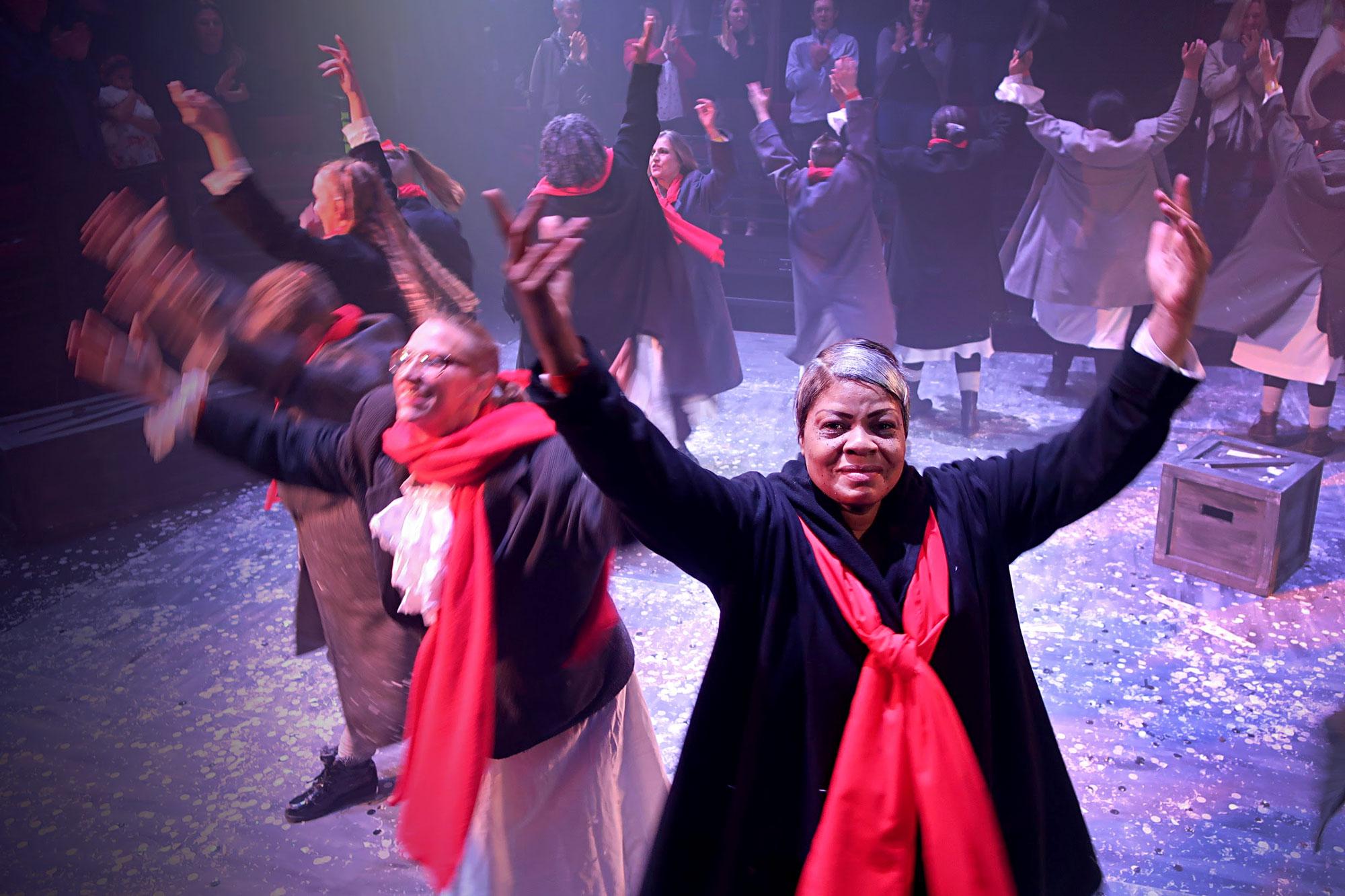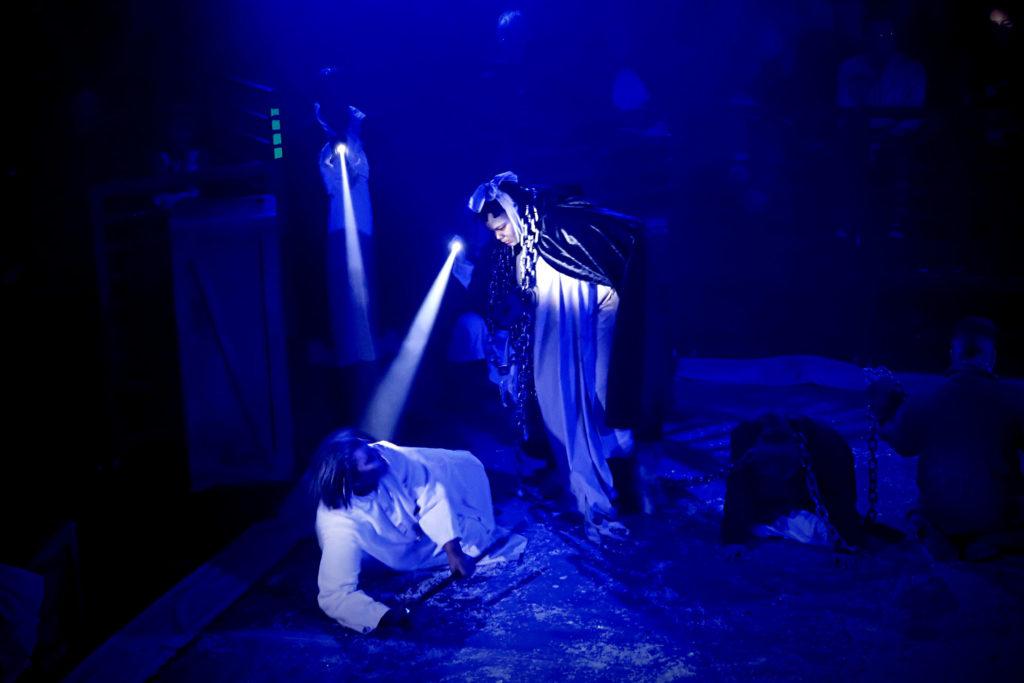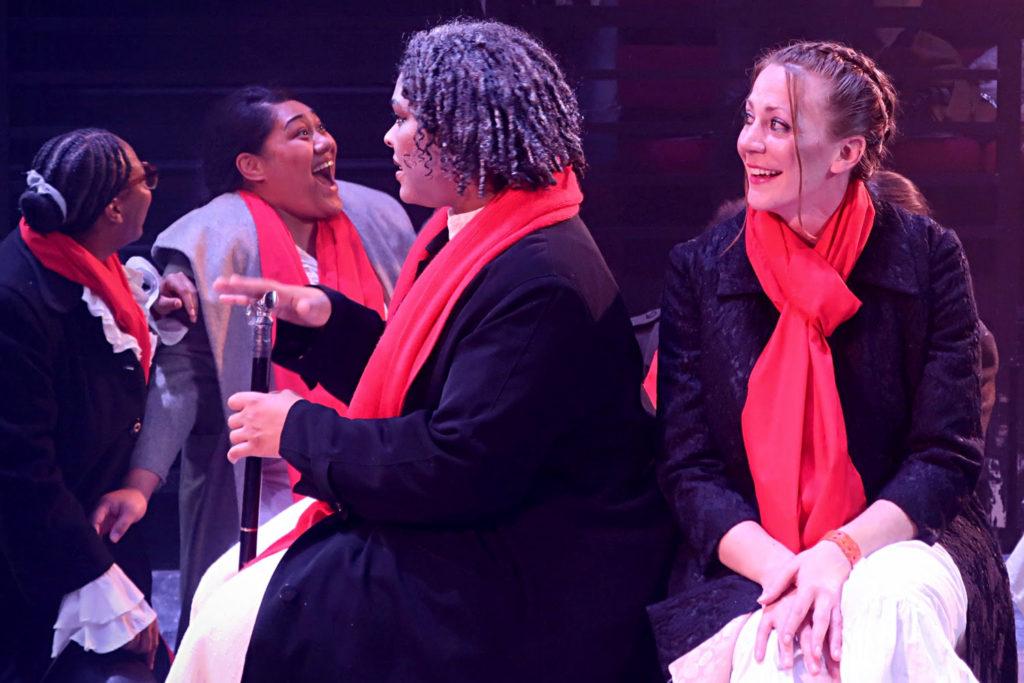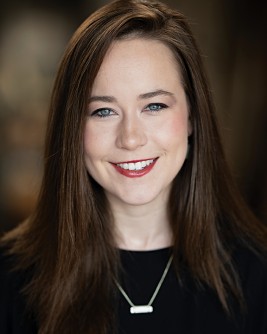
A woman in coattails and a curly bob struts to the center of a snow-strewn stage.
It’s Ebeneezer Scrooge, angry and bickering with everyone in sight, from her nephew to her employee, Bob Crachit — all played by women.
Scrooge blows off their gestures of Christmas spirit with an iconic, “Bah! Humbug!”
It’s a gender-swapped cast by necessity: The crew and actors are all incarcerated at the Denver Women’s Correctional Facility.
But that night, the inmates are out in the world and performing "A Christmas Carol" to a full house at the University of Denver’s Newman Center. It’s a professional venue, and their three performances sold out 1,000 tickets in just five days.
“This like a dream,” said Patrice Pullie, who has been in prison since April. She could be eligible for parole this spring. “I just feel honored and privileged, and I think it’s so awesome that our [Department of Corrections] has enough trust in us and enough faith in us to bring us out here into the public.”

This is the second time the Colorado Department of Corrections has partnered with DU’s Prison Arts Initiative to make a play on tour. In September, inmates of Sterling Correctional Facility performed One Flew Over the Cuckoo’s Nest in other Colorado prisons.
The goal of arts initiatives like these is to make life inside prison as much like life outside prison as possible. The way DOC’s executive director Dean Williams sees it, it’s a matter of safety.
“Where things are the worst and the most dangerous is where 'us versus them' lives big. And this experience reduces 'us versus them,'” Williams said. “Whatever happened in the past, you're still paying for that. You're still gonna pay for it when the show was over. But you're on a mission. We're on a mission together.”
And that idea — the past is unchangeable, but the future is full of possibility — is central to “A Christmas Carol.”
After the ghosts of Christmas past, present and future show miserly old Ebenezer Scrooge how he hurts people and drives them away, the old man screams to the ghost of Christmas Yet to Come: “Why show me this if I’m past all hope? Assure me that I yet may change these shadows you have shown me by an altered life.”
Jamiylah Nelson, who plays young Scrooge, still tears up backstage when she hears that monologue. Nelson has served 12 years for first-degree murder. She’ll serve for at least another decade.

“I would never say we deserve our freedom when we've taken from society, but the fact of the matter is we're going back out into society,” Nelson said. “So, to have society on our side as opposed to, you know, not opposed to us. It's just profound and we're crying for that equality, that redemption.”
Most of these incarcerated actors will eventually be released. But statistically in Colorado, half of all inmates, male and female, will end up back in prison.
Re-entry into society is a challenge. It demands soft skills, such as appropriate emotional expression, compromise and determination. Prison can be a hard place to practice those.
Nelson and DU's Prison Arts Initiative director, Ashley Hamilton, both see theater as a place to build healthy relationships and practice self-expression before inmates are released.
“They’re going to be our neighbors. They’re going to work with us. And we want folks to come home feeling set up to be successful so that they can stay home and so that no more harm can be caused," Hamilton said.
In the meantime, inmates are acting out Scrooges’ second chance on stage.









